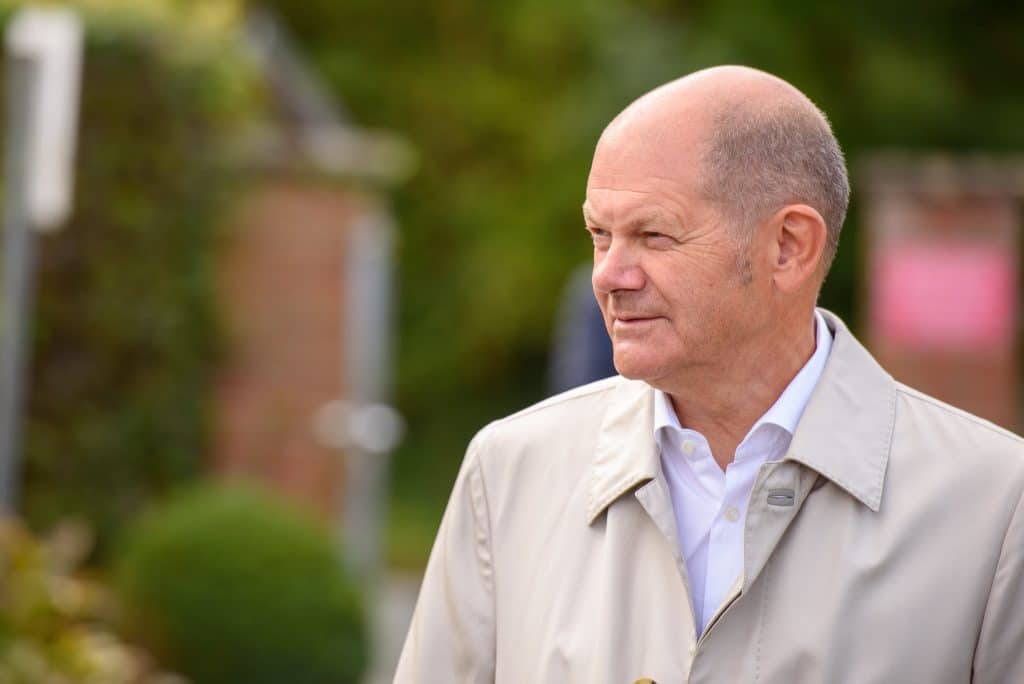After weeks of negotiation that carried Angela Merkel well beyond her expected exit date, Germany has formed a new coalition government, ending her 16 years stint as one of Europe’s premier politicians. Now that Merkel’s 31-year political career has come to an end, the position of chancellor has been taken up by the Social Democrats’ Olaf Scholz. Scholz, who has previously served as Merkel’s vice-chancellor, advertised himself as akin to a “Merkel 2.0” throughout the September 2021 election.
The German Parliament is composed of two chambers, the Bundesrat, with 69 members, and the Bundestag, with a minimum of 598 members. The Bundestag is the more powerful of the two chambers, is fully elected, and has the ability to propose legislation, determine budgets and make foreign policy decisions.
The Bundesrat, intended to function as a check on the power of the Bundestag, is much smaller and its members are recommended by provincial governments rather than elected with its role partly reflecting the relationship between the House of Commons and House of Lords in the UK. Its role is to ratify the policies put forward by the Bundestag while ensuring said policies agree with the German Constitution.
The Ballot
Germany has general elections every four years to determine the Bundestag’s membership. Every German citizen that is at least 18 years old is able to vote. When at the polls, each voter receives a ballot with two choices, one for district representative and one for a political party.
The first option on the ballot card is for the district representative and functions on a first-past-the-post basis. Each of Germany’s 299 constituencies, representing approximately 250,000 inhabitants each, gets a representative. The second option on the ballot is for a political party and uses proportional representation. Parties determine candidates to be listed for each of Germany’s federal states, with these candidates being listed under the party’s name.
If a party receives more district representative seats than is proportional with the party vote, then other parties may receive additional seats to make the parliament proportional with the party vote. These are known as overhang seats. As of the most recent elections, the Bundestag has 736 seats, meaning there are 138 overhang seats.
Picking a Chancellor
Typically, when a new parliament meets, the top candidate from the party with the most votes forms a coalition with one or more of the smaller parties. The German head of State, the German President, who occupies a mainly ceremonial role, presents this person as a candidate for Chancellor. The parliament then ratifies the candidate as Chancellor in an anonymous vote.
The Merkel Years
Until the recent elections, Angel Merkel had held the position of chancellor for the past 16 years, as a member of the Christian Democratic Union (CDU). The CDU is considered to be centre-right, supporting an array of pro-free-market, socially conservative positions. Merkel has been a major player in European and world politics throughout this time and was named as Forbes’ “most powerful woman in the world” more than a dozen times.
Merkel held a reputation in Germany as a relatively honest politician, above the partisanship and political games that frame much of parliamentary proceedings. She was also perceived as a voice of reason, in contrast to other world leaders from recent years. Because of this, opinions of Merkel are relatively positive, even amongst left-wing Germans who profess a dislike for the CDU.
It was this reputation that carried her through her 16 years as chancellor, leaving office just 10 days short of becoming the longest-serving chancellor in post-war history. She trails only Helmut Kohl, who first led West Germany from 1982, before carrying the country through reunification, serving until 1998.
Olaf Scholz Takes the Helm
Scholz is a member of the Social Democrats (SPD), a centre-left party that typically supports socially liberal policies along with environmental and worker protections. The SPD narrowly defeated the CDU in the elections that took place in September, and have formed a coalition with the centre-left Green Party.
This would typically sit him to the left of Merkel, however, Scholz advertised himself as a continuation of much of the work that Merkel was previously doing. Yet, the SPDs alliance with the Green Party might suggest a stronger stance towards combating climate change than has previously been taken and a push towards more left-wing issues than he previously suggested.
The Scholz led German government is in for a testing first few months, with the explosion of the Omicron variant across Europe, a resurgent migrant crisis, and rising tensions between Russia and Ukraine.



